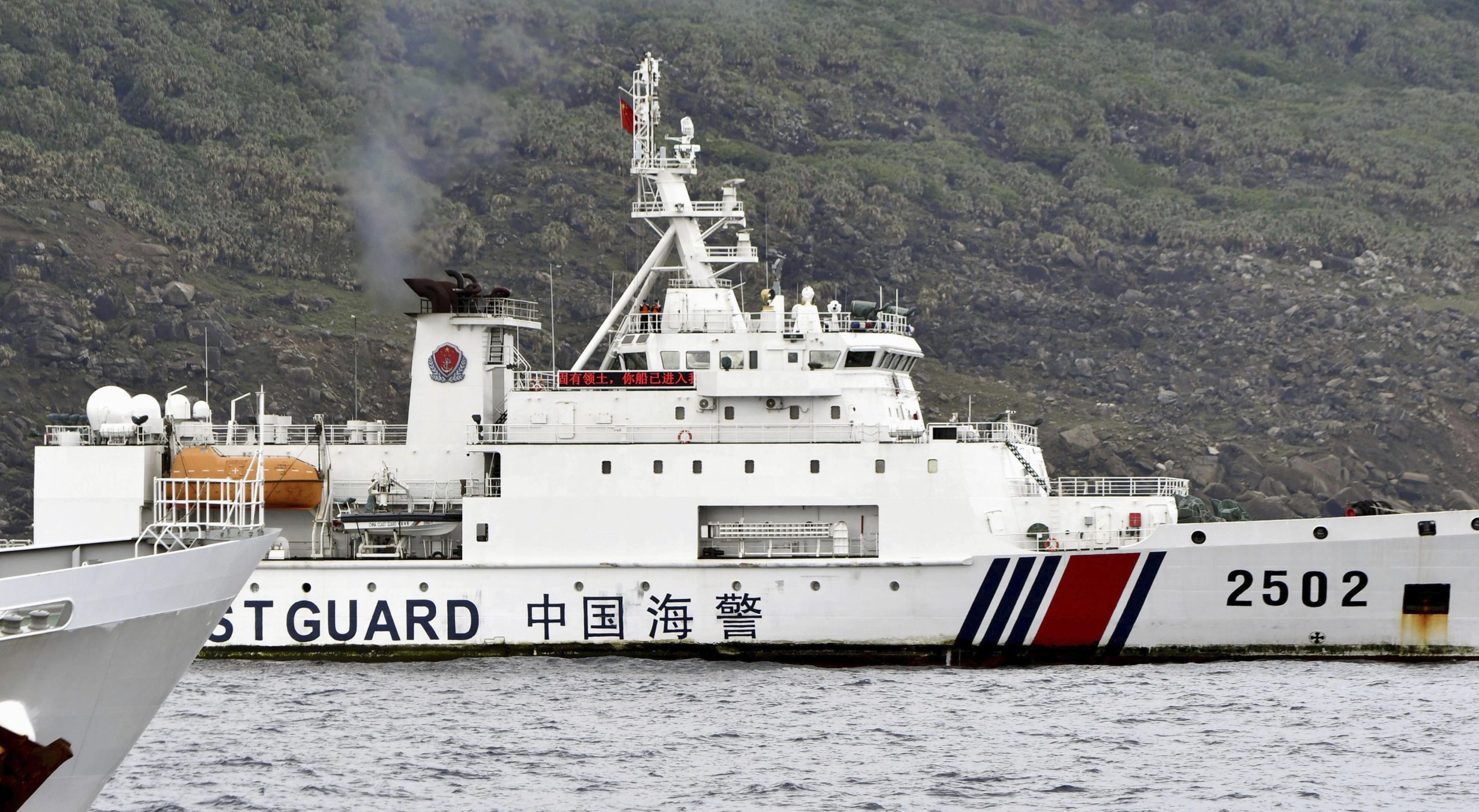
China has deployed its coast guard on weekslong patrols inside a border area disputed by South Korea, in what analysts say is a calculated move to gradually normalize effective control and gain leverage over the U.S. ally.
Newsweek reached out to the Chinese embassy in South Korea and the South Korean Coast Guard by email with requests for comment.
Why It Matters
The Chinese Coast Guard’s large, heavily armed cutters are a favorite tool for asserting Beijing’s territorial claims in disputes with several neighbors, including Japan and the Philippines in the East and South China seas, respectively.
The ships’ activities come as Seoul is preoccupied with the insurrection trial of President Yoon Suk-yeol over his short-lived declaration of martial law in December, which sparked a political crisis. China’s actions could further strain relations with Seoul, already tense over repeated intrusions by Chinese fishing boats into the country’s exclusive economic zone (EEZ).
What To Know
The area in question is the Provisional Measures Zone, which overlaps the EEZs of both nations and is the focus of ongoing negotiations to delineate an official maritime boundary.
An EEZ is an area extending 200 nautical miles (230 miles) within which a country has exclusive rights to natural resources under international maritime law.
China insists on 124 degrees east longitude as the baseline for its territorial waters in the Yellow Sea, known in South Korea as the West Sea, based on a 1962 border treaty. This is well within South Korea’s EEZ.
“This can be seen as pressure on the South Korean government, which is strengthening its ties with the US, as well as increasing its effective control over the West Sea,” Dong Gyu Lee, a research fellow at the Seoul-based Asian Institute for Policy Studies, told Newsweek.

Kyodo via AP Images
Ray Powell, director of the Stanford University-affiliated SeaLight maritime analysis organization, identified three coast guard ships that have been sailing back and forth in the contested area.
The 650-foot China Coast Guard ship 6104 was around 170 miles off South Korea’s west coast on Friday, according to open-source ship-tracking data viewed by Newsweek. Another ship, CCG-6501, was situated 120 miles off South Korea’s Jeonbuk State.
Both have spent much of the past three weeks around 124 east longitude, except for brief returns to port.
A third ship, CCG-1304, was as recently as Monday sailing in the East China Sea about 124 miles southwest of South Korea’s Jeju Island. It is currently docked at the Port of Chongming, north of Shanghai.
The Chinese Coast Guard patrols follow reports China constructed a 160-foot-tall structure in the Provincial Measures Zone. China previously installed similar structures—claiming they were meant to support fishermen—before later removing them after complaints from Seoul.
South Korean officials have warned that Beijing could build as many as a dozen additional installations in the area.
Frequent incursions into South Korea’s EEZ by Chinese fishermen remain a key point of contention.”
Last autumn, Seoul intensified its law enforcement response to these ‘illegal’ Chinese fishing activities, ejecting numerous vessels, seizing others and confiscating their catches.
“China’s increasing fishing activities and military exercises in South Korea’s EEZ could be used to establish its effective control over the West Sea and gain leverage in negotiations with South Korea,” Lee said.
“He added that Chinese military exercises in the Yellow Sea have also increased as strategic competition between Beijing and Washington heats up.
What’s Being Said
Ray Powell, director of the Stanford University-affiliated SeaLight maritime analysis organization, wrote on X (formerly Twitter):
“China Coast Guard vessels regularly and visibly conduct intrusive patrols deep within the exclusive economic zones of neighboring countries, an activity meant to establish a continuous presence and gradually normalize Chinese jurisdiction over areas granted to its neighbors under international law.”
What’s Next?
South Korean authorities have not yet commented publicly on the Chinese Coast Guard activity. It remains to be seen how this will affect Seoul’s efforts to resolve the maritime boundary issue.





